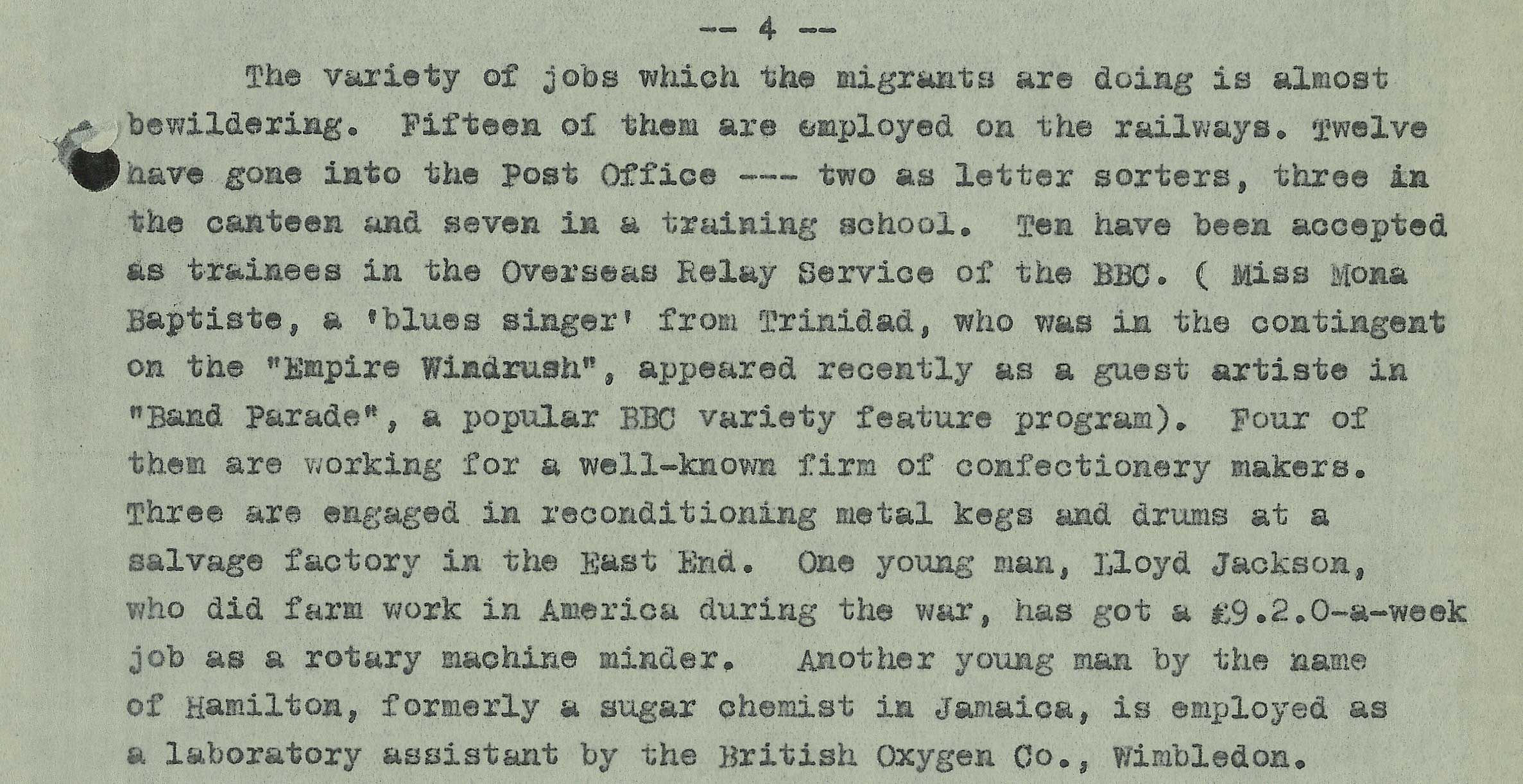
Extract from Report by Eric Walrond entitled ‘Negro migrants in Britain, 1947 December-1948 October, Catalogue ref: CO 876/88
Contains original language used at the time which is not appropriate today.
Transcript
…
The variety of jobs which the migrants are doing is almost bewildering. Fifteen of them are employed on the railways. Twelve have gone into the Post Office—two as letter sorters, three in the canteen and seven in the training school. Ten have been accepted as trainees in the Overseas Relay Service of the BBC. (Miss Mona Baptiste, a ‘blues singer’ from Trinidad, who was in the contingent on the “Empire Windrush”, appeared recently as a guest artiste in “Band Parade”, a popular BBC variety feature program). Four of them are working for a firm of well-known confectionary [sweet] makers. Three are engaged in reconditioning [recycling] metal kegs and drums at a salvage factory in the East End. One young man, Lloyd Jackson, who did farm work in America during the war, has got a £9. 2 shillings a week job as a rotary machine minder [work with heavy machinery]. Another young man by the name of Hamilton, formerly a sugar chemist in Jamaica, is employed as a laboratory assistant by the British Oxygen Co., Wimbledon.
…
- Where did some of the migrants travelling on the Empire Windrush find work?
- What does this report tell us about the skills of these passengers?
- How does the report explain why these people wanted to come to Britain?
- Find out more about ‘blues singer’ Mona Baptiste mentioned in the document.
